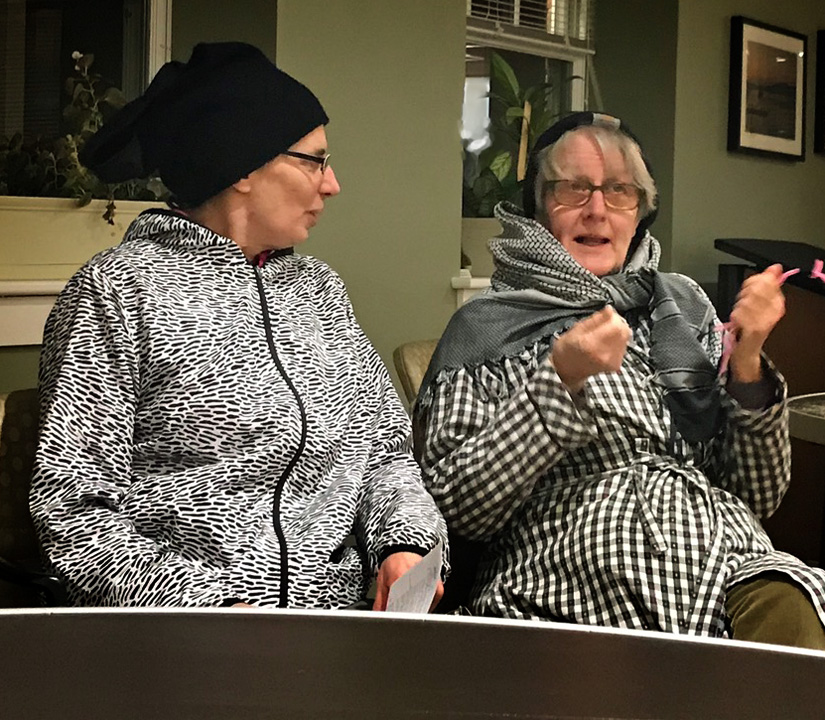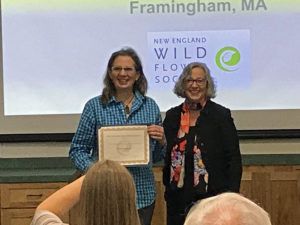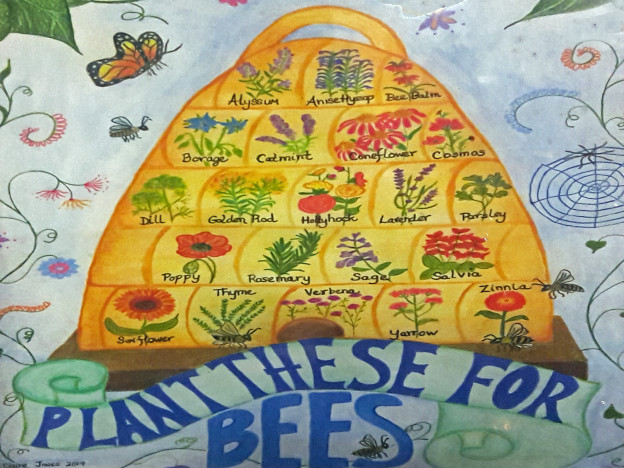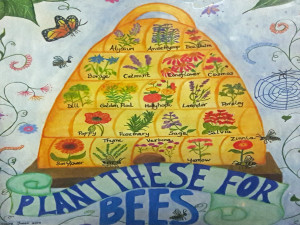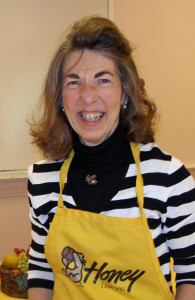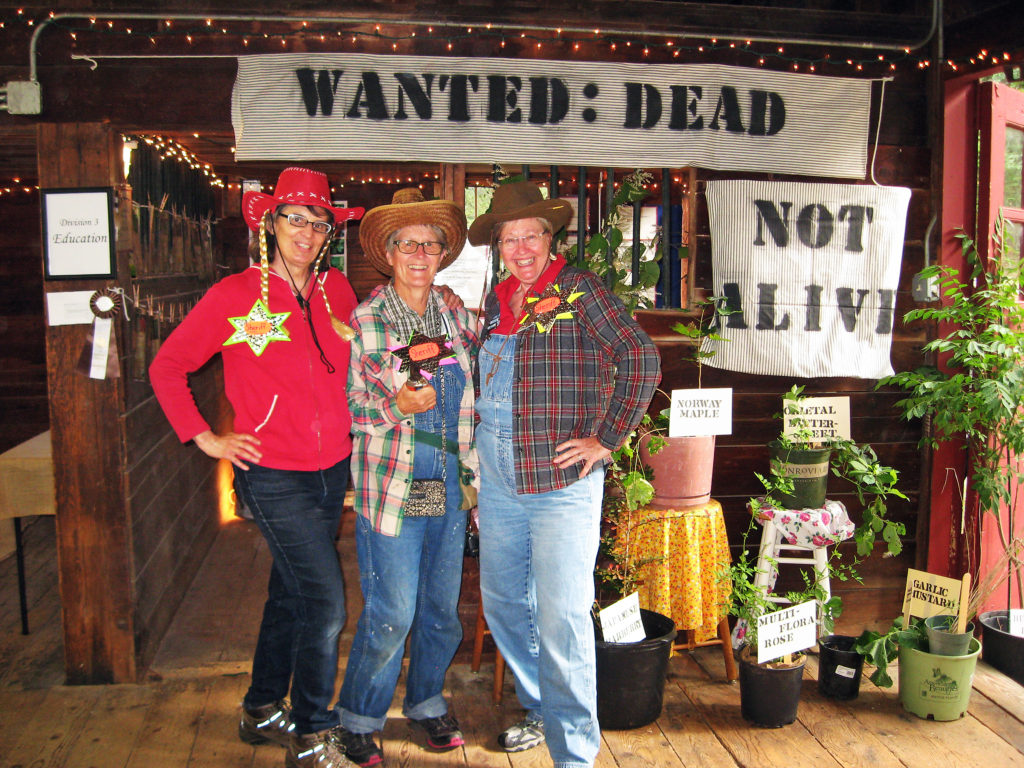
WANTED: DEAD NOT ALIVE received an Educational Excellence award at the Sharon Garden Club’s September Garden Medley on September 9, 2017. The exhibit featured potted exotic invasive plants and illustrated some of the environmental damage they cause. Left to right are Carol Lundeen of Easton and Brenda Minihan and Ellen Schoenfeld-Beeks of Sharon. The trio played roles as invasive plant sheriffs, engaging visitors in conversation and offering invasive plant checklists, images, and ideas for native plant alternatives. Photo by Carol Lundeen.
WANTED: DEAD NOT ALIVE received an Educational Excellence award at the Sharon Garden Club’s September Garden Medley on September 9, 2017. The exhibit featured potted exotic invasive plants and illustrated some of the environmental damage that invasives cause. Carol Lundeen of Easton and Brenda Minihan and Ellen Schoenfeld-Beeks of Sharon played roles as invasive plant sheriffs, engaging visitors in conversation and offering invasive plant checklists, images, and ideas for native plant alternatives.
Exotic invasive plants have no natural predators and diseases that would naturally control their growth. Some invasive plants have escaped from our home gardens and public plantings into natural areas and cause profound environmental and economic damage. Massachusetts has developed a list of problematic plants. Some are even illegal to sell, including Norway maple, Japanese maple, burning bush, all hollow-stemmed honeysuckles, garlic mustard, oriental bittersweet, and Japanese knotweed.
The exhibit also included a “Talking Tree,” a young pin oak tree that posed the question, “When I turn one hundred years old, what do you hope I will say?” Visitors then wrote their answers on a card and tied their card to the tree with yarn. The tree will be planted at the Unitarian Universalist Church in the center of Sharon.
The sheriffs urge folks to learn about the species considered invasive in the area, generate a list of those on your property or in your town, create a plan for eliminating them, and execute your plan. Contact the Sharon Garden Club or Carol Lundeen for further information.
Please follow and like us:
